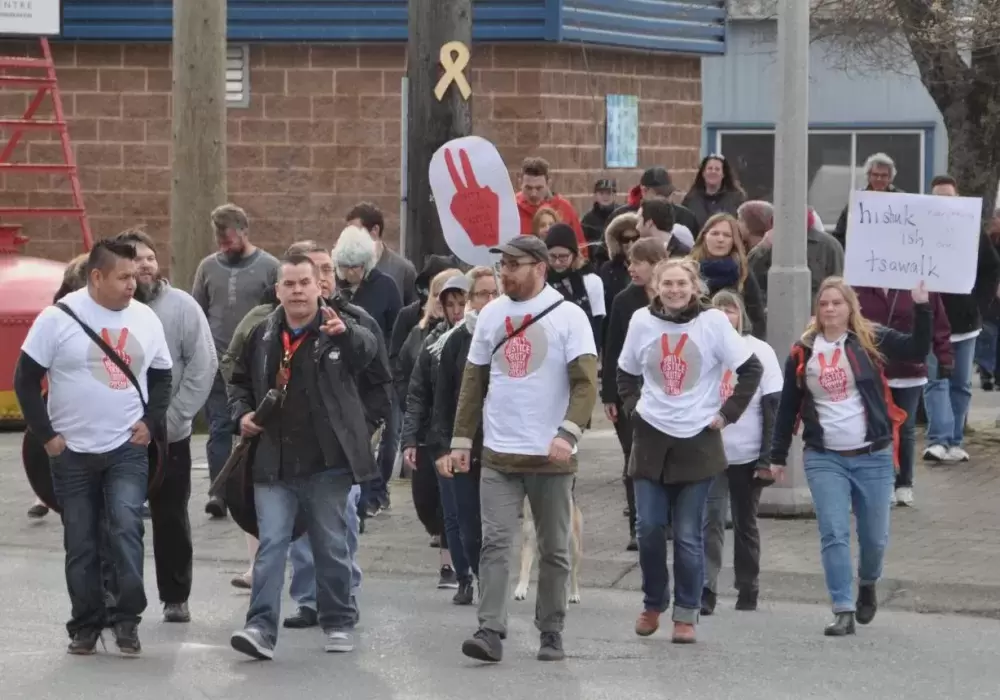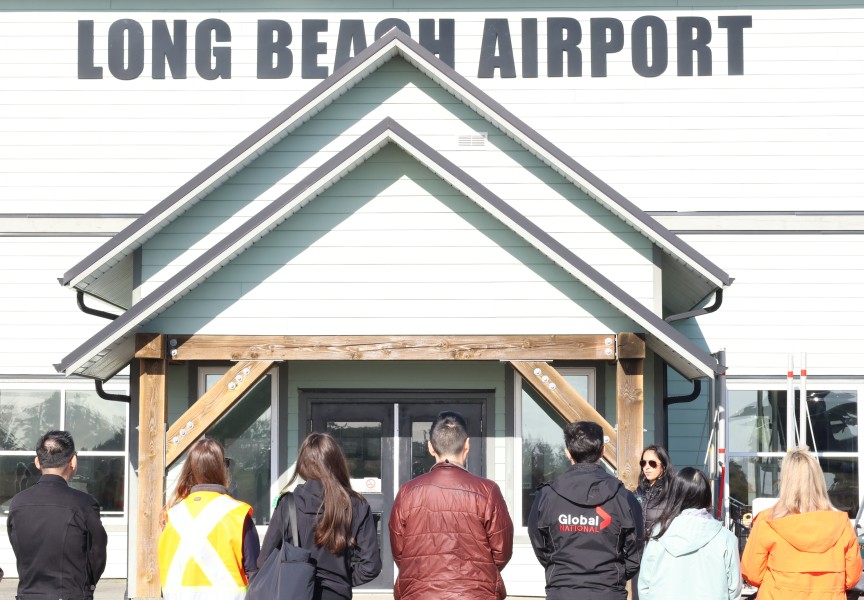This summer the City of Port Alberni is taking steps to improve relations with the aboriginal members of its community by forming the Reconciliation Committee.
The volunteer municipal committee is currently being assembled to help strengthen relations between Indigenous and non-Indigenous people, while elevating the community’s awareness of its aboriginal presence. Port Alberni Mayor Mike Ruttan proposed the committee earlier this year with hopes of establishing a stronger working relationship with the Tseshaht and Hupacasath. Port Alberni is situated on the unceded territory of the two First Nations.
“We want to make sure that what we do is respectful and compliments our First Nations,” said Ruttan. “As a city we want to continue down that path of dialogue with all of our First Nations, be able to do even more projects together and be able to discuss upcoming initiatives - whether they be legal or economic or otherwise, before they become reality.”
The committee’s purpose is “investigating practical actions” to help progress reconciliation, according to the terms of reference approved by city council on July 10. Its members are to consist of one city councilor, two appointees from each of the Hupacasath and Tseshaht First Nations, plus one to three residents appointed by city council. The municipality will be collecting applications from city residents until July 24.
The committee is expected to meet regularly until a report can be submitted to the City of Port Alberni, the Hupacasath and the Tseshaht First Nations. This final document is intended to identify potential initiatives that could strengthen the greater community’s awareness of local aboriginal history and culture, including possible funding sources for reconciliation activities and actions that the governments could take in response to the Truth and Reconciliation Commission of Canada Calls to Action.
“It’s completely open in terms of what the suggestions are - it could be a dinner, it could be a project, it could be an event,” noted Ruttan. “We’re not predetermining what those decisions are going to be. We have decided we would convene the committee, give them the broad terms of reference and then engage the process as a committee to see what comes out of it.”
The Hupacasath plans to hold community meetings to determine what needs to be identified in the path towards reconciliation, said Elected Chief Councillor Steve Tatoosh.
“We don’t have any direction from the general community, so we’ll be seeking that out in the next month and a half, two months,” he said. “Part of it would mean a recognition of our community and a recognition of the history of our community.”
“We are willing to sit at the table and be a part of the decision making,” said Tseshaht Elected Chief Councillor Cynthia Dick of the Reconciliation Committee. “Our first order of business would be gathering all the representatives to review the terms of reference and come up with recommended changes just to make sure that we are looking at it from all perspectives.”
With its mandate of cultural awareness, the Reconciliation Committee is intended to be another step for the community beyond Port Alberni’s past relations with aboriginal peoples. This history includes the operation of the Alberni Indian Residential School for almost a century and 23 years of being represented in Ottawa by A.W. Neill, a pre-World War II Member of Parliament who also facilitated the residential school system as the region’s Indian agent. With a Port Alberni elementary school and street named after Neill, calls were made earlier this year to remove his recognition. But as the cost of changing the street was estimated at $19,000, city council opted to keep Neill Street.
In March the Walk for Reconciliation drew hundreds to Port Alberni’s uptown and this event was followed by the proposal to form a select committee. Ruttan said that the committee would have been assembled regardless of the A.W. Neill issue.
“We were heading in that direction anyway as a city; it was just a matter of when we were going to choose to do it,” he said.
The mayor noted that the city’s participation in a reconciliation workshop at the Federation of Canadian Municipalities in June revealed that Port Alberni has progressed on the issue of improving relations with First Nations.
“It’s clear that the City of Port Alberni is a lot further down the road than many other municipalities in Canada,” he said.
But like any community in Canada, racism still exists, said Dick.
“That’s one thing that was acknowledged in the Walk for Reconciliation, is that it’s not one targeted group; racism takes place regardless of what your background may be,” she said. “Some of it is less noticeable than other actions. There’s definitely room for growth in Port Alberni.”
Progress can be made by those who are ready to initiate change, said Dick. She saw this after the Walk for Reconciliation when Cloud City donated proceeds from its Canada 150 shirts towards the Tseshaht’s recreation program and youth centre.
“There’s people who are very upset even with the word reconciliation because it means rebuilding a relationship, but people say, ‘How can you rebuild something that never existed?’ said Dick. “I’ve heard a new word being used, and it’s reconcile-action. I really like that word.”
The Reconciliation Committee is part of a national trend of municipalities working more closely with First Nations, said Ruttan.
“There’s an increasing interest in finding out how municipalities can work with their neighbouring First Nations governments, because that’s really the way for our society to move ahead economically and socially,” he said.
“It’s looking at people, every single individual, and knowing that they have a place,” Dick added. “The thing that comes to my mind is our way of life, our way of being. So his^uk %is c`awaak, it’s more than just words. We all want it interconnected.”







